As the sun sets on another sea turtle nesting season, Destin-Fort Walton Beach is celebrating a banner year for these endangered marine reptiles. With a record number of nests and hatchlings, the 2024 season highlights the success of local conservation efforts and increased public awareness.
- Jessica Valek, newly appointed Natural Resources Manager for Visit Destin-Fort Walton Beach and head of the Destin-Fort Walton Beach Sea Turtle Patrol Team in Okaloosa County, shared the results of this year’s nesting season in a recent interview.
“The season actually started early for us this year,” Valek said, referring to an unexpected early arrival. On April 28, just days before the official May 1 start date, beachgoers reported a Kemp’s ridley sea turtle nesting on the beach. This rare event set the tone for an exceptional season.
Kemp’s ridley sea turtles are the most endangered sea turtle species and typically don’t nest on Destin-Fort Walton Beach shores. However, this year saw not one, but three confirmed Kemp’s ridley nests before June 1.
- “All three turtles were seen by beachgoers,” Valek explained, emphasizing the certainty of the species identification. “So we know for certain that they were all Kemp’s ridley nests.”
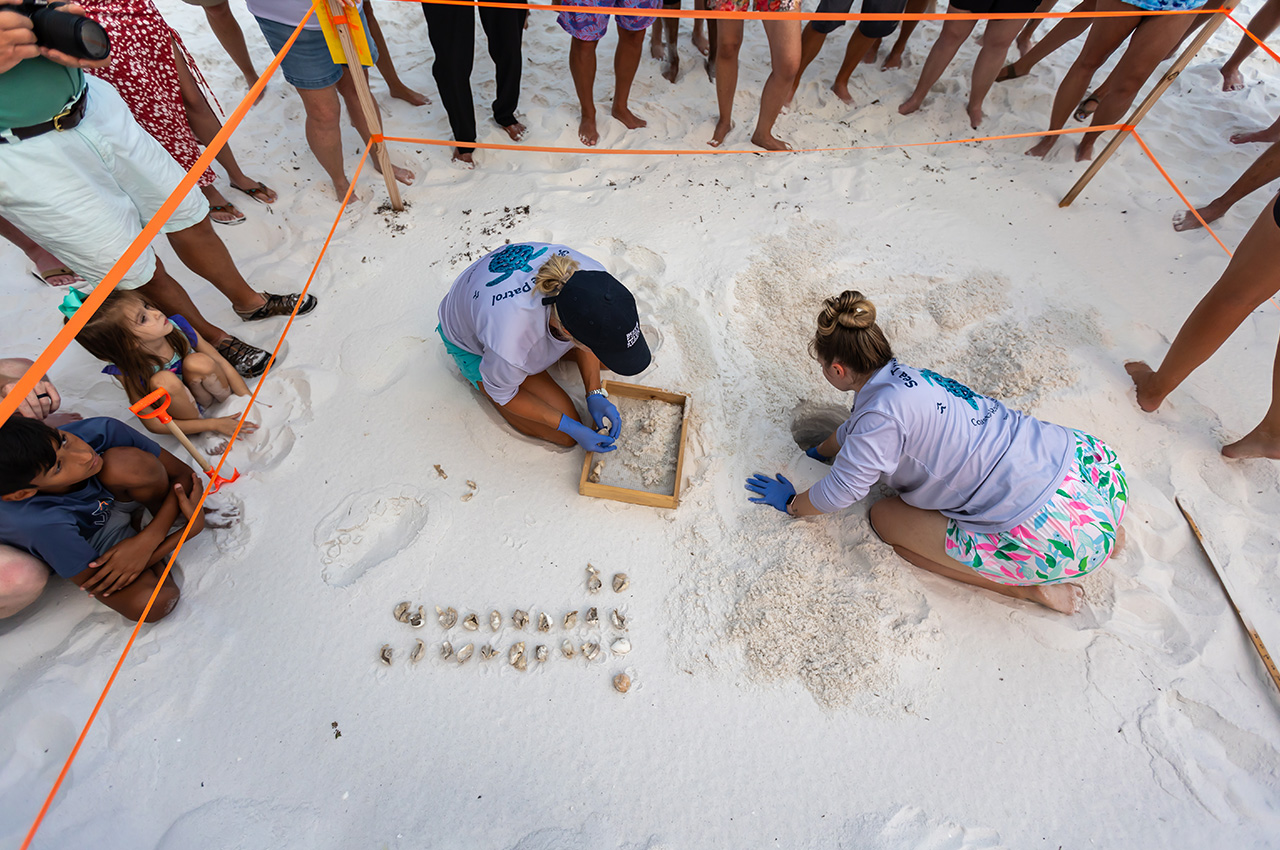
Following this unusual start, the beaches saw primarily loggerhead sea turtle activity, which is more common in the area. In total, the season yielded 18 sea turtle nests — 15 loggerhead and three Kemp’s ridley — a significant increase from the previous year’s 12 nests.
“In Destin last year, we only had nine sea turtle nests,” Valek noted. “All of our sea turtle nests this year happened to be in Destin. So we doubled the number of nests this year as we did last year.”
The increase in nesting activity resulted in a higher number of hatchlings. A total of 1,550 hatchlings made their way from the nests to the Gulf of Mexico this season with an average of 101 eggs per nest. The average hatch success rate was an impressive 85%, meaning that 85% of the eggs in each nest successfully hatched.
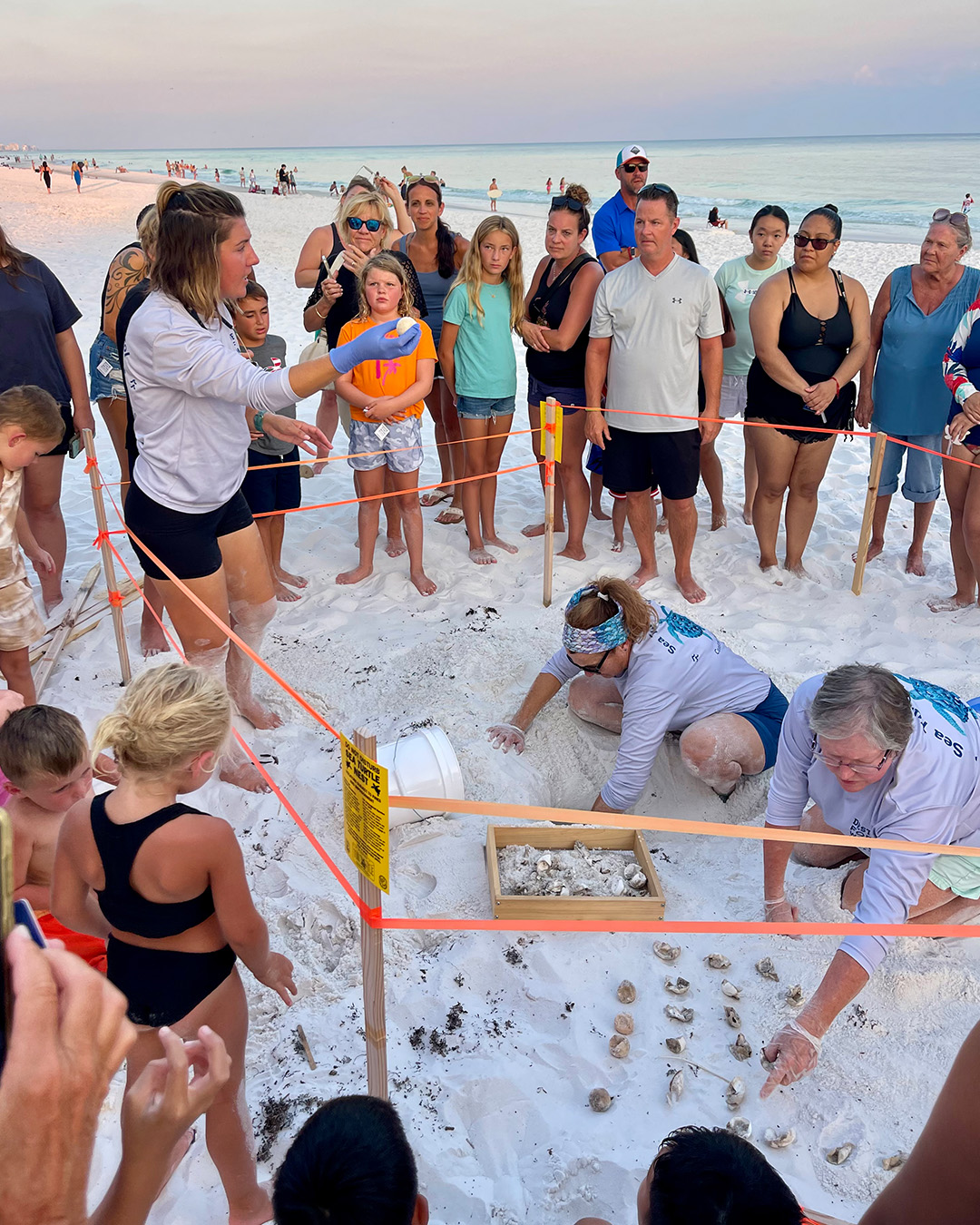
- This success is particularly noteworthy given the challenges faced during the season, including severe weather events. “Our last two nests both got impacted by Hurricane Francine and Helene, and both of them still ended up hatching,” Valek said. “So that was really exciting.”
While the exact reasons for the increase in nesting activity are difficult to pinpoint, Valek suggested that it could be due to the natural nesting cycles of sea turtles. “Sea turtles don’t nest every single year,” she explained. “The females that we had nesting on our beaches this year probably didn’t nest last year. They typically take a year or two off in between nesting seasons.”
A critical factor in this year’s success has been the increased public awareness and education efforts spearheaded by Valek and her team. This marks the first year of operation for the official Destin-Fort Walton Beach Sea Turtle Patrol, which has expanded its reach and impact.
- “We have a whole new team of people out there on the beaches every day,” Valek said. “There are a lot more people involved than we used to have which means more people out there actively talking to beachgoers and educating them.”
The team’s presence on the beaches has become more visible, with clearly marked vehicles and team members actively engaging with the public. They distribute contact cards with a newly established sea turtle hotline number, allowing for quick reporting of turtle sightings or nesting activities.
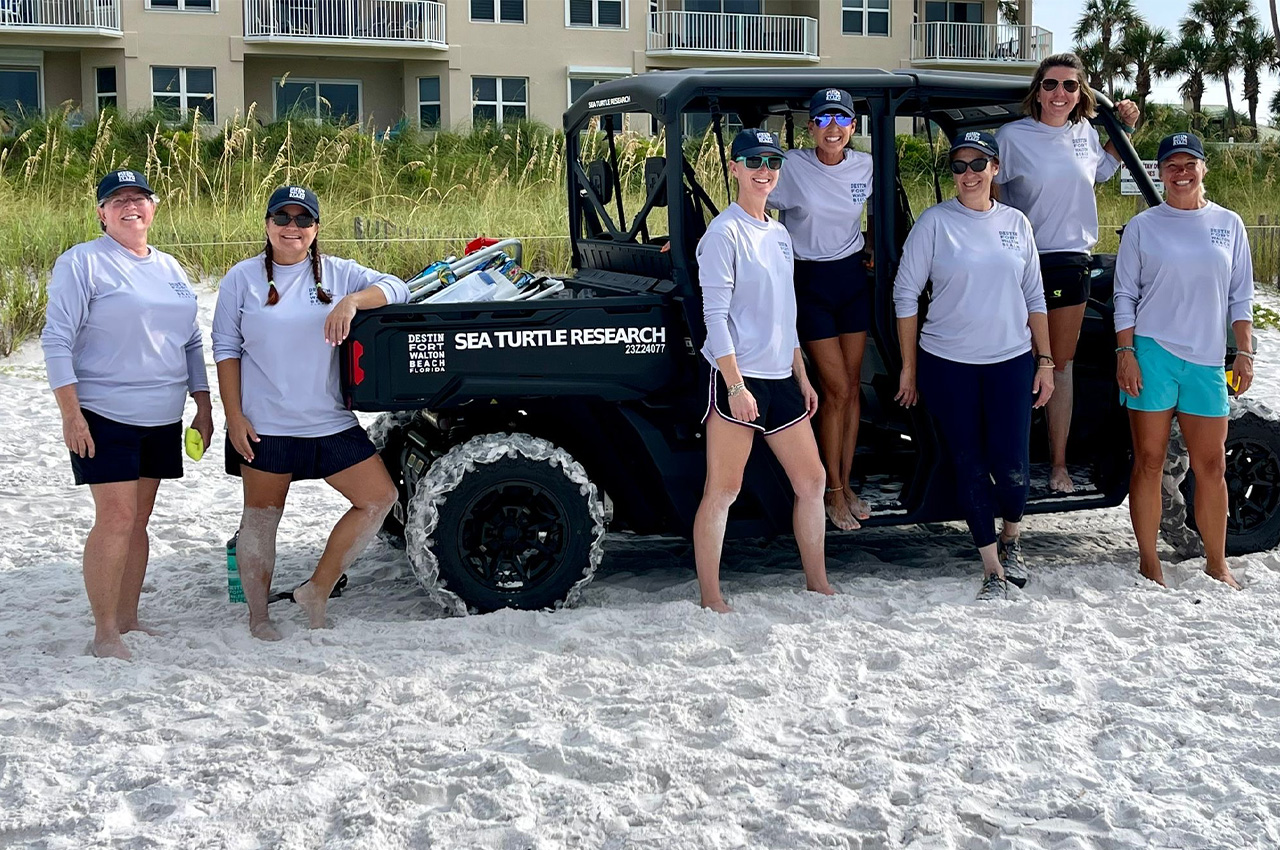
“This is the first year that there’s ever been a sea turtle nesting-related hotline for Okaloosa County, Destin-Fort Walton Beach,” Valek explained. “People are able to find that number. They are calling it. We’ll get calls in the middle of the night about a turtle on the beach or a nest hatching.”
The team’s outreach efforts extend beyond the beaches. They participate in local events, such as the International Beach Cleanup Day, and put on their own Turtle Talks to spread awareness about sea turtle conservation. Their Facebook page has grown rapidly, becoming a valuable platform for disseminating information and updates.
- One of the key initiatives has been promoting the use of red, turtle-friendly flashlights. “We’re seeing red lights on the beach in the mornings and at night,” Valek said. “We’d love to continue to see more red lights.”
The importance of these efforts is highlighted by the fact that eight of the 18 nests experienced disorientation, meaning the baby sea turtles didn’t crawl directly to the Gulf of Mexico. This disorientation is possibly due to artificial lighting. While this season’s disorientations were maybe caused by building lights rather than flashlights, it reinforces the need for continued education and adherence to turtle-friendly lighting practices.
Valek praised her team’s dedication and enthusiasm throughout the season. “I have an awesome team,” she said. “I could not be more thankful for them. They go above and beyond anytime I need them to.”
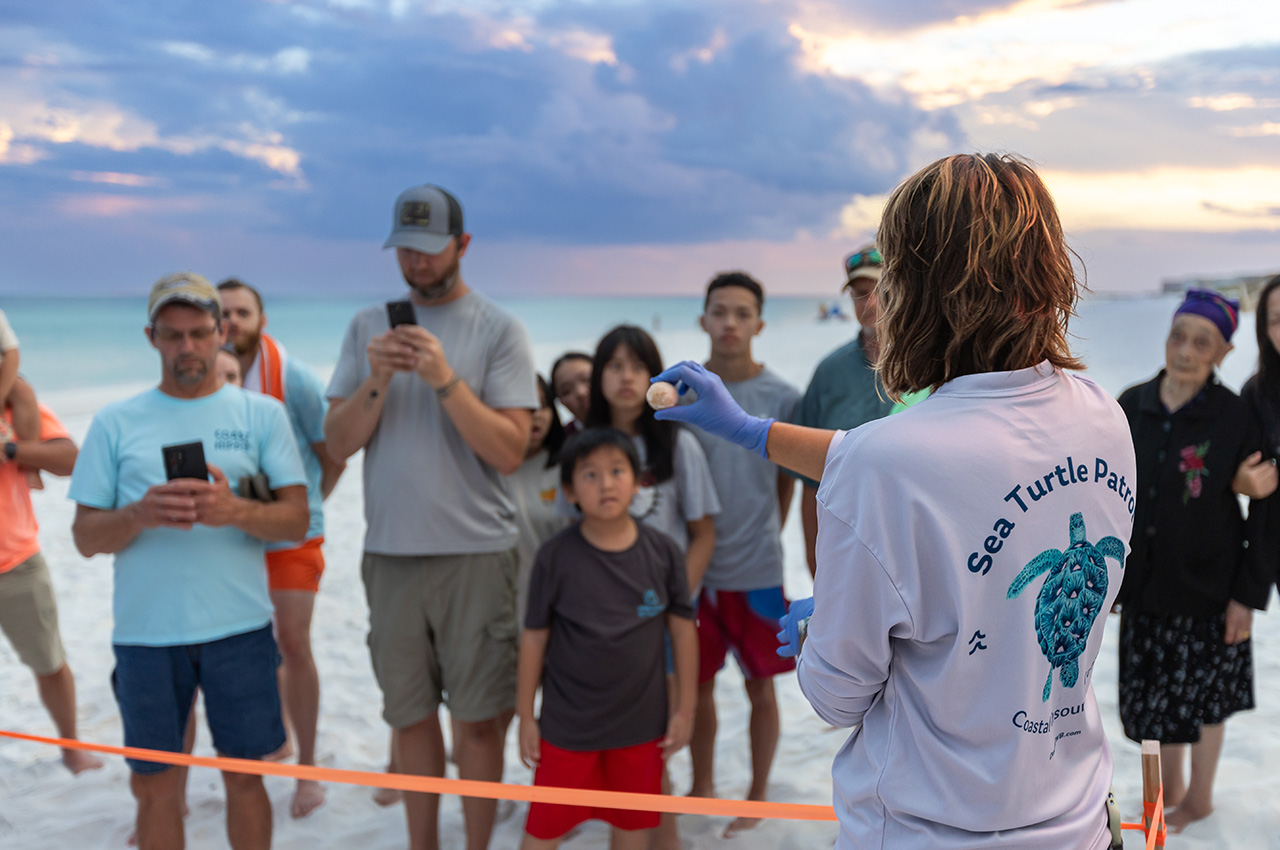
The early mornings and demanding work haven’t dampened the team’s spirits. Valek described the excitement that comes with each new discovery: “If you see me out there when I find a nest or a crawl, I’m usually jumping up and down…probably screaming a little bit. I’m always excited.”
- This excitement extends to the public interactions, which Valek finds particularly rewarding. “It’s so much fun to see the beachgoers genuinely interested in learning,” she said. “When we do our nest evaluations, sometimes the public is allowed to come and watch, and when we have a hatchling left in the nest, it’s just so fun to see the excitement that these people have.”
As the official nesting season comes to a close on October 31, Valek emphasized that the work doesn’t end there.
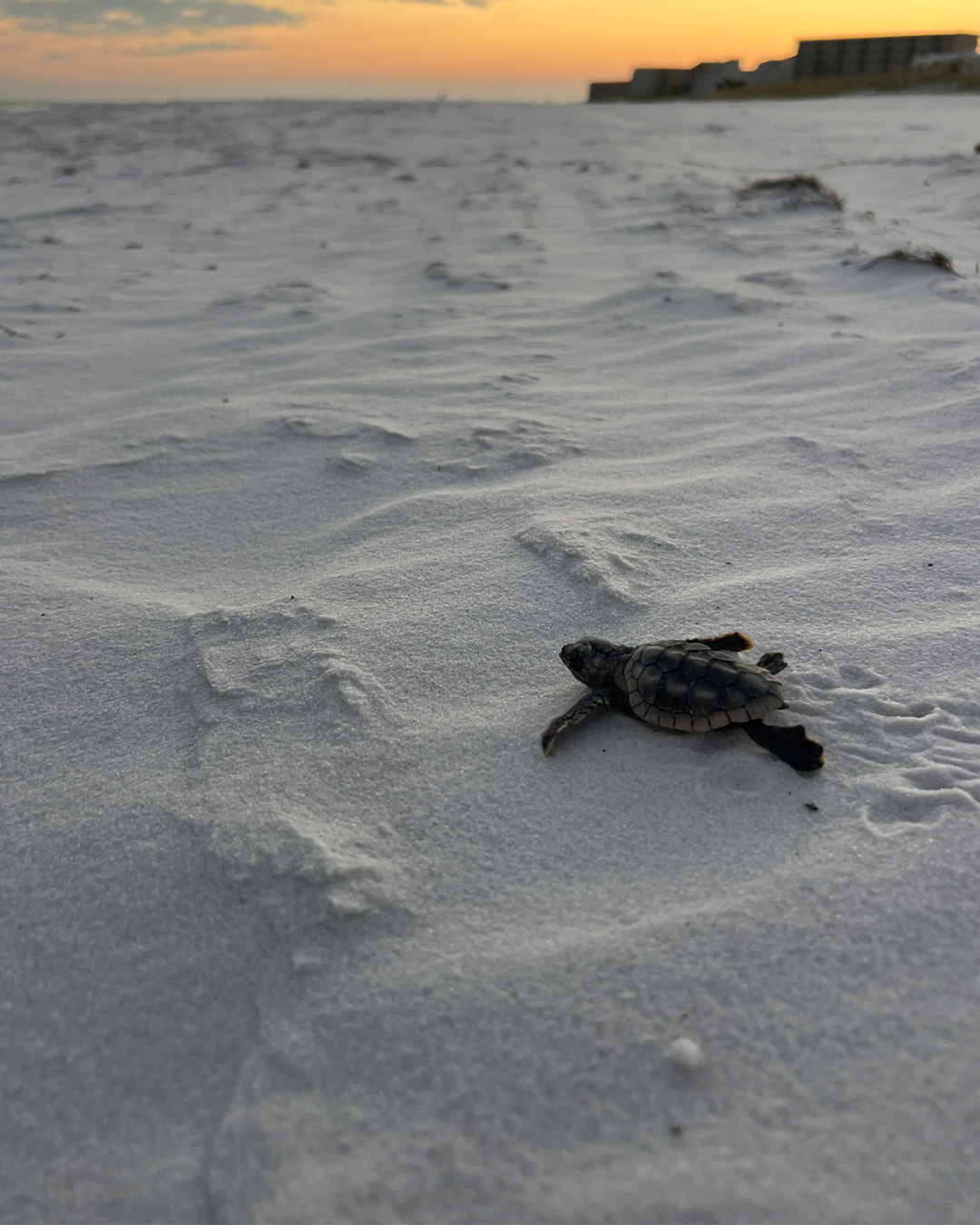
“It’s still important that we’re following the ‘keep it clean, flat, and dark’ mentality because there are still nests in other areas around us that have not hatched,” she said. “This means keeping our beaches clean of litter, filling in holes and flattening sandcastles to ensure a clear path for hatchlings, and using proper red turtle-friendly flashlights instead of bright white lights that can disorient the turtles. Even though our nesting season is winding down, these practices help protect any late-hatching nests and support conservation efforts in neighboring areas.”
Looking ahead, Valek is optimistic about the future of sea turtle conservation in the area. The success of this season has set a new benchmark for the team, and they’re eager to build on this momentum.
- “I’m looking forward to growing the team in the future and bringing on more people who share the same passion and dedication that we do,” Valek said. “It has been wonderful getting to see them learning and experiencing a lot of these things for the first time. It has been really rewarding.”
The record number of nests and high hatch success rate in Destin-Fort Walton Beach this season reflect the community’s growing commitment to sea turtle conservation. As public awareness increases and conservation efforts expand, Valek hopes to build on this year’s success to further protect and support the sea turtle populations that nest on these shores.
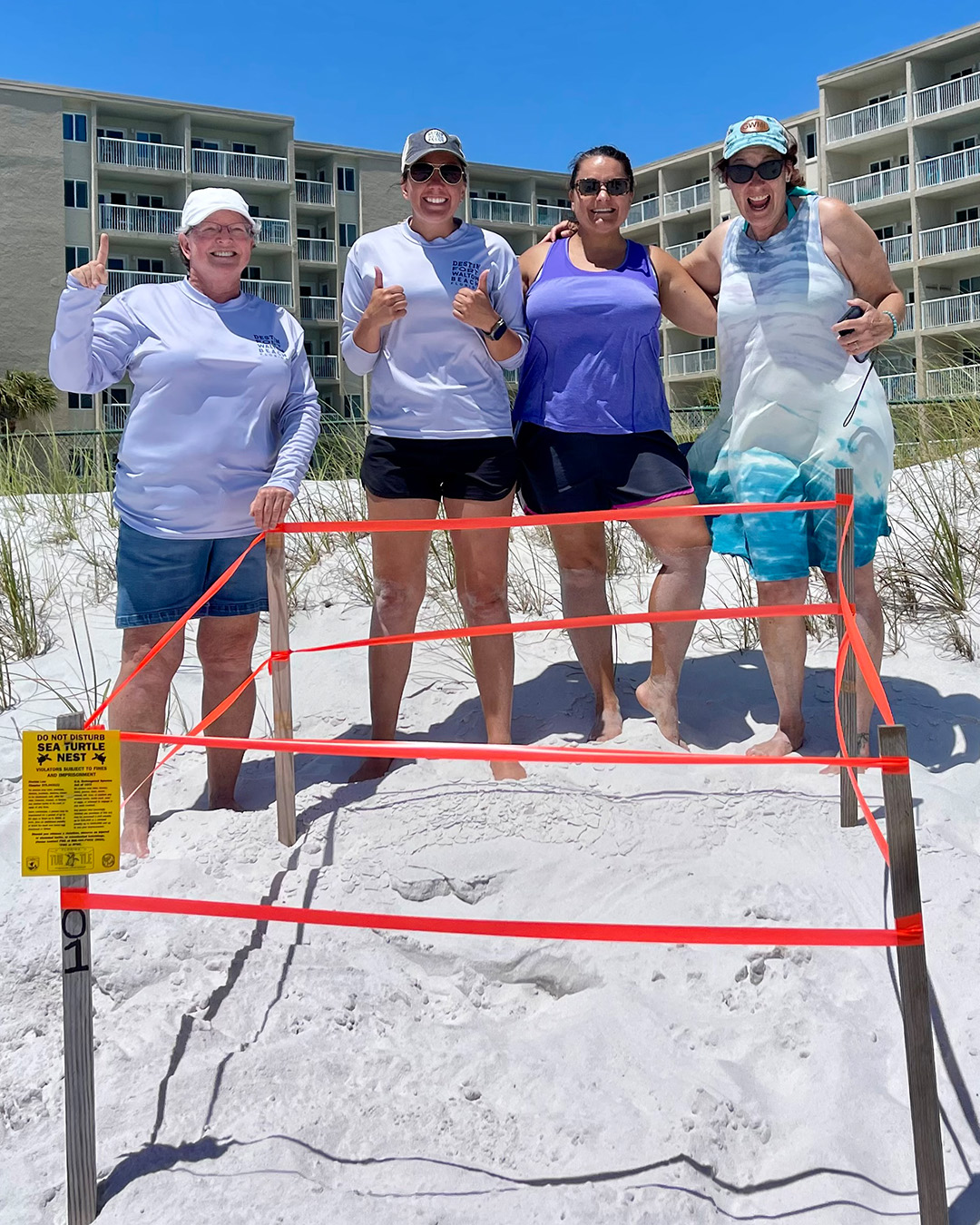
“It never gets old,” Valek said, reflecting on the season. “When we do these nest evaluations, you never know what you’re going to see in that nest. You never know if there’s going to be live hatchlings in there. Sometimes there are, and it never gets old seeing a little baby sea turtle because they are literally the cutest things in the entire world.”

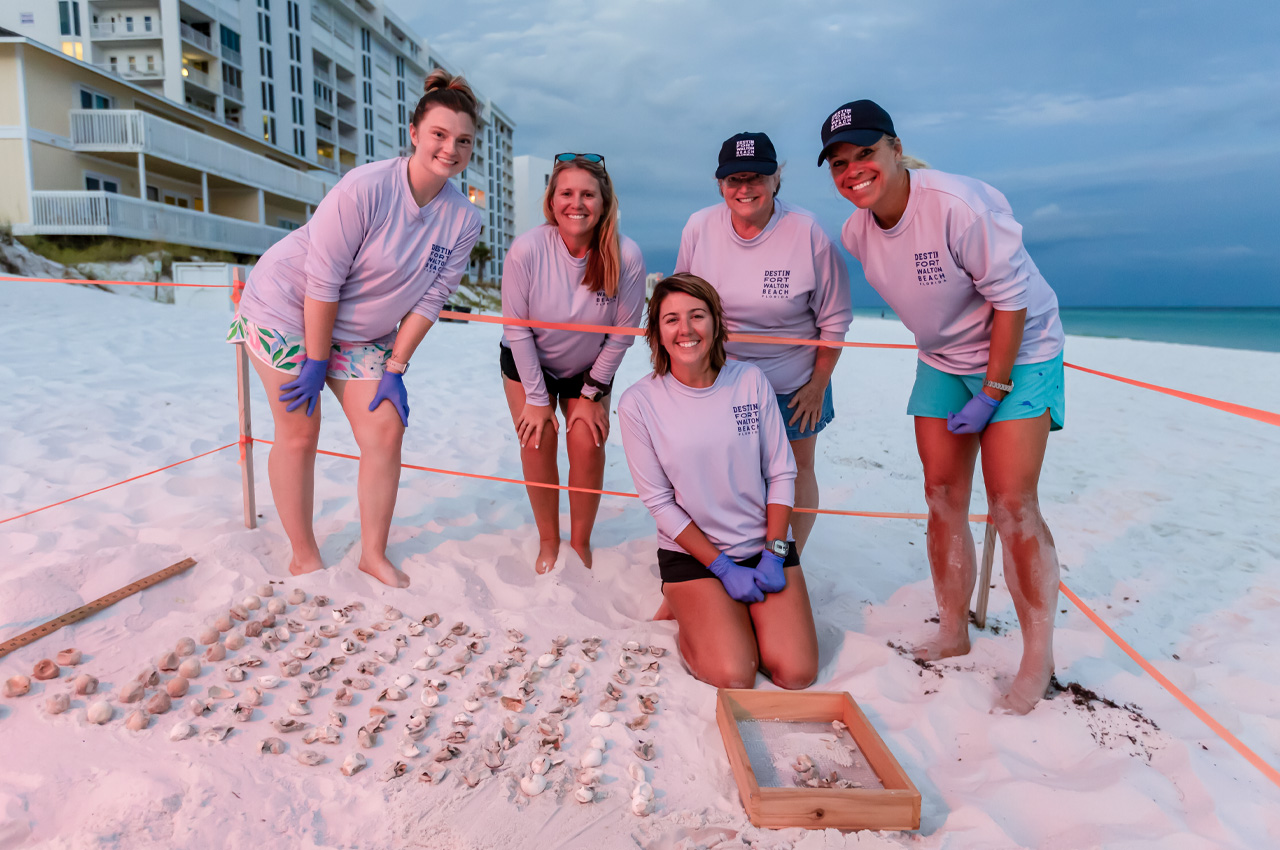
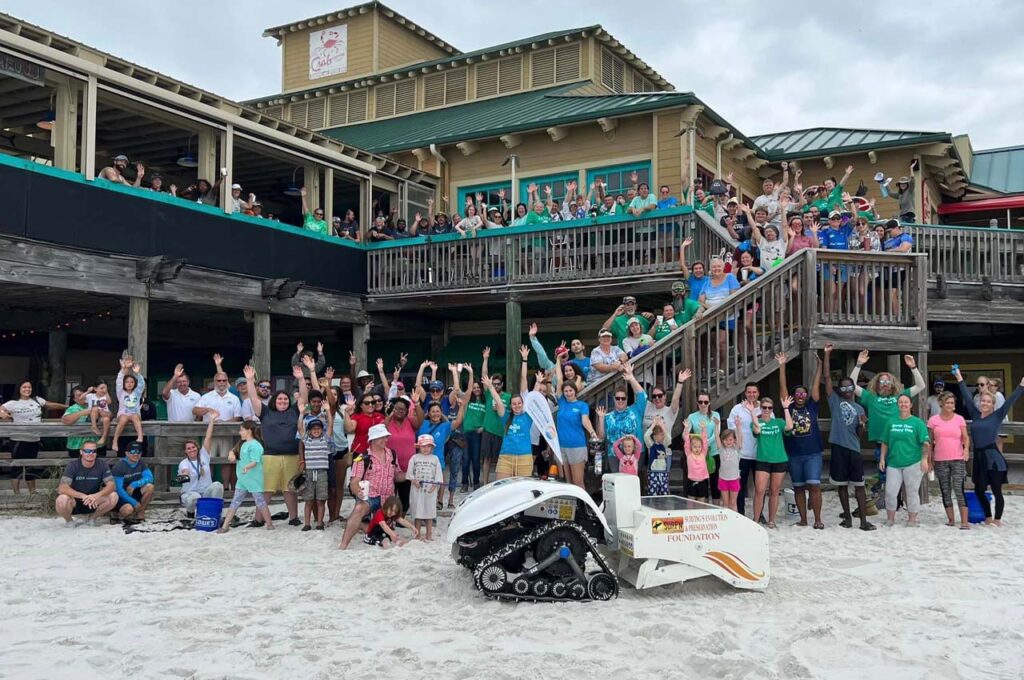
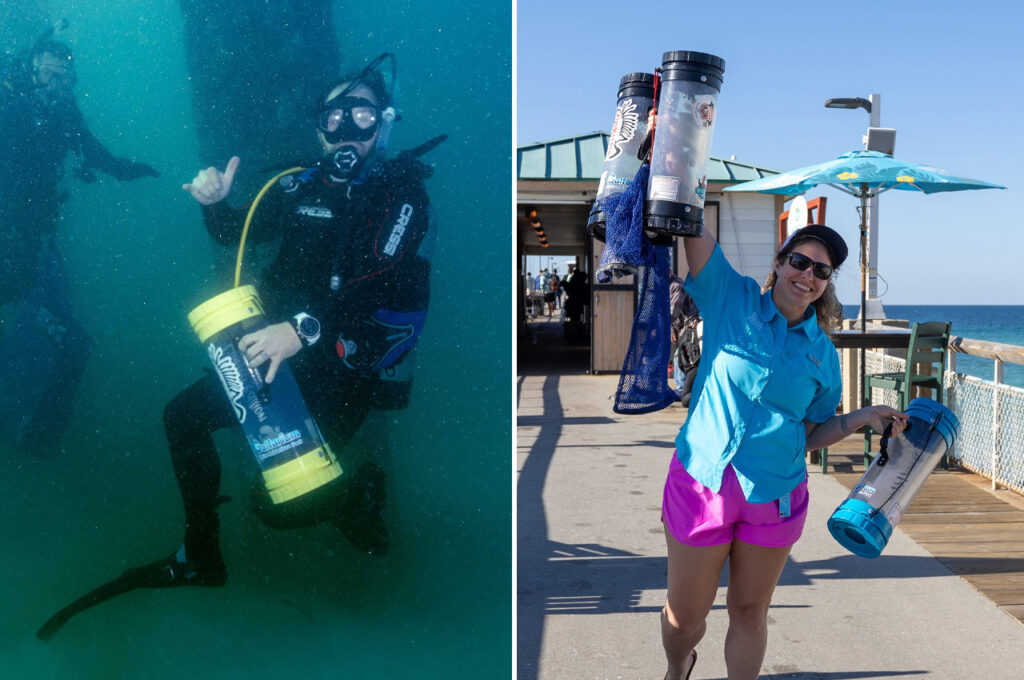
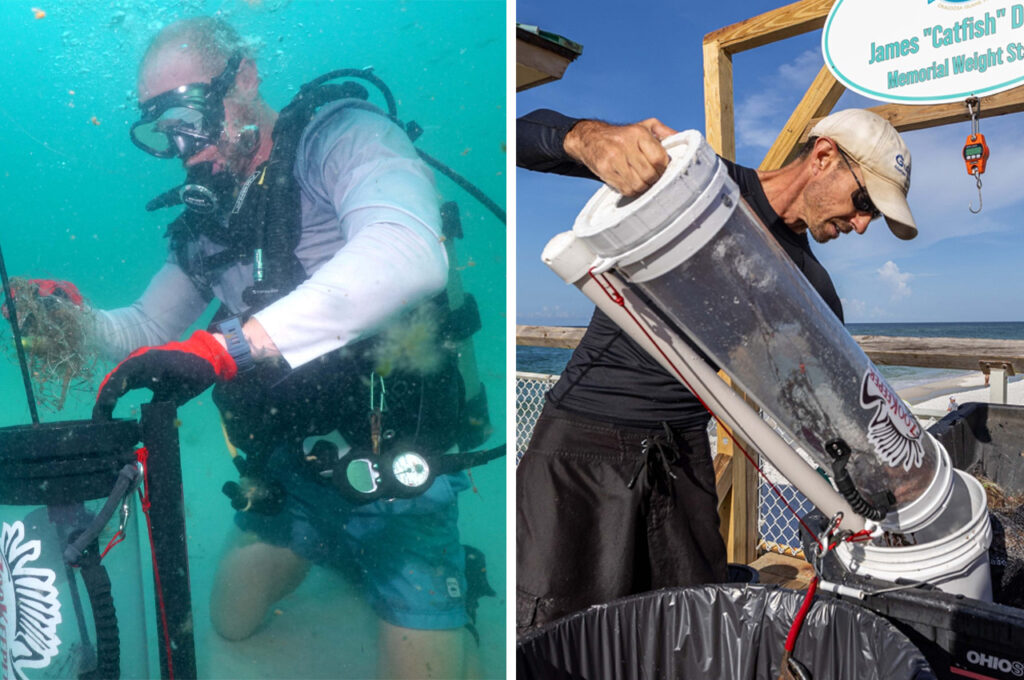
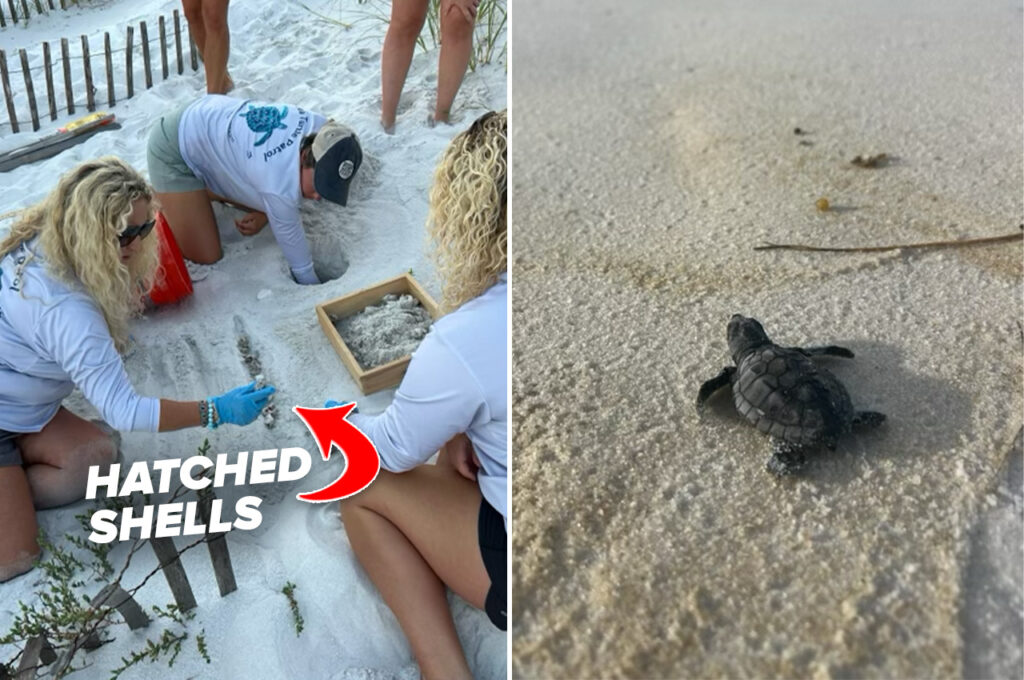
3 Responses
I love this!!! Great work ❤️
This is incredible! Job well done
We are so blessed and proud to have this outstanding program locally.